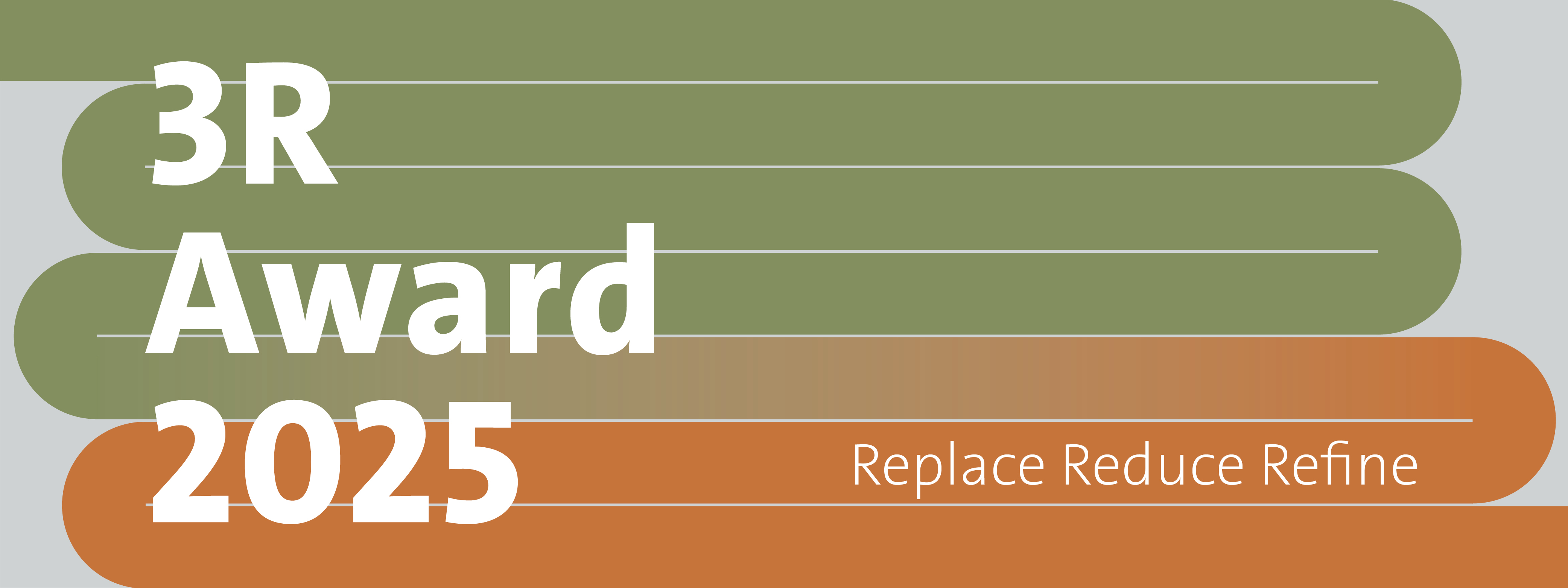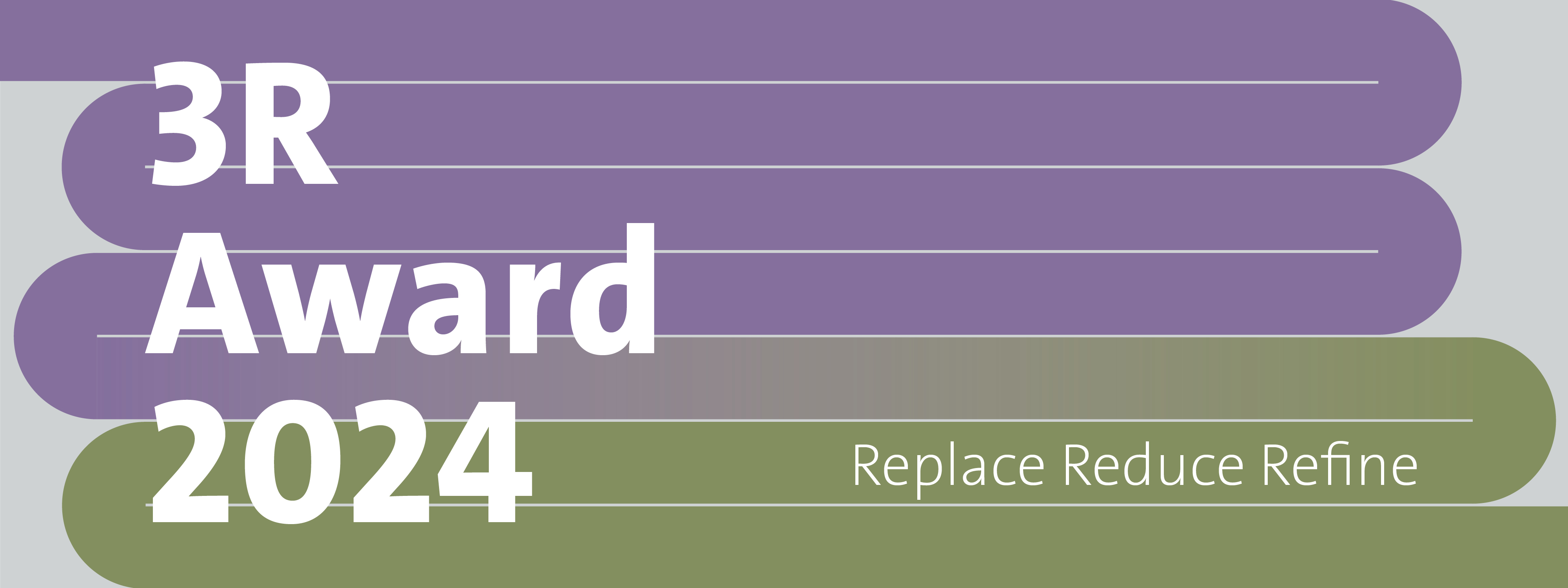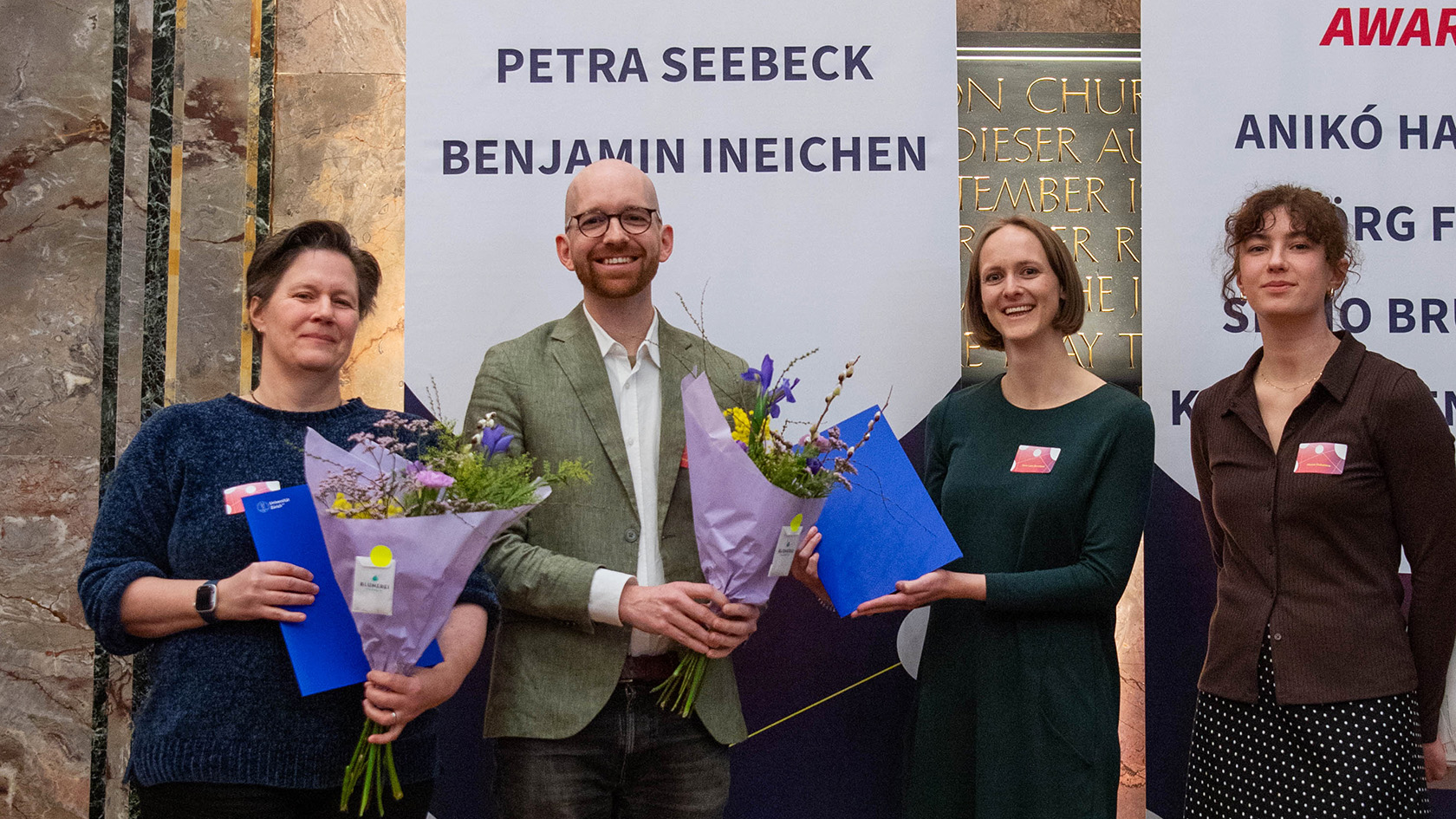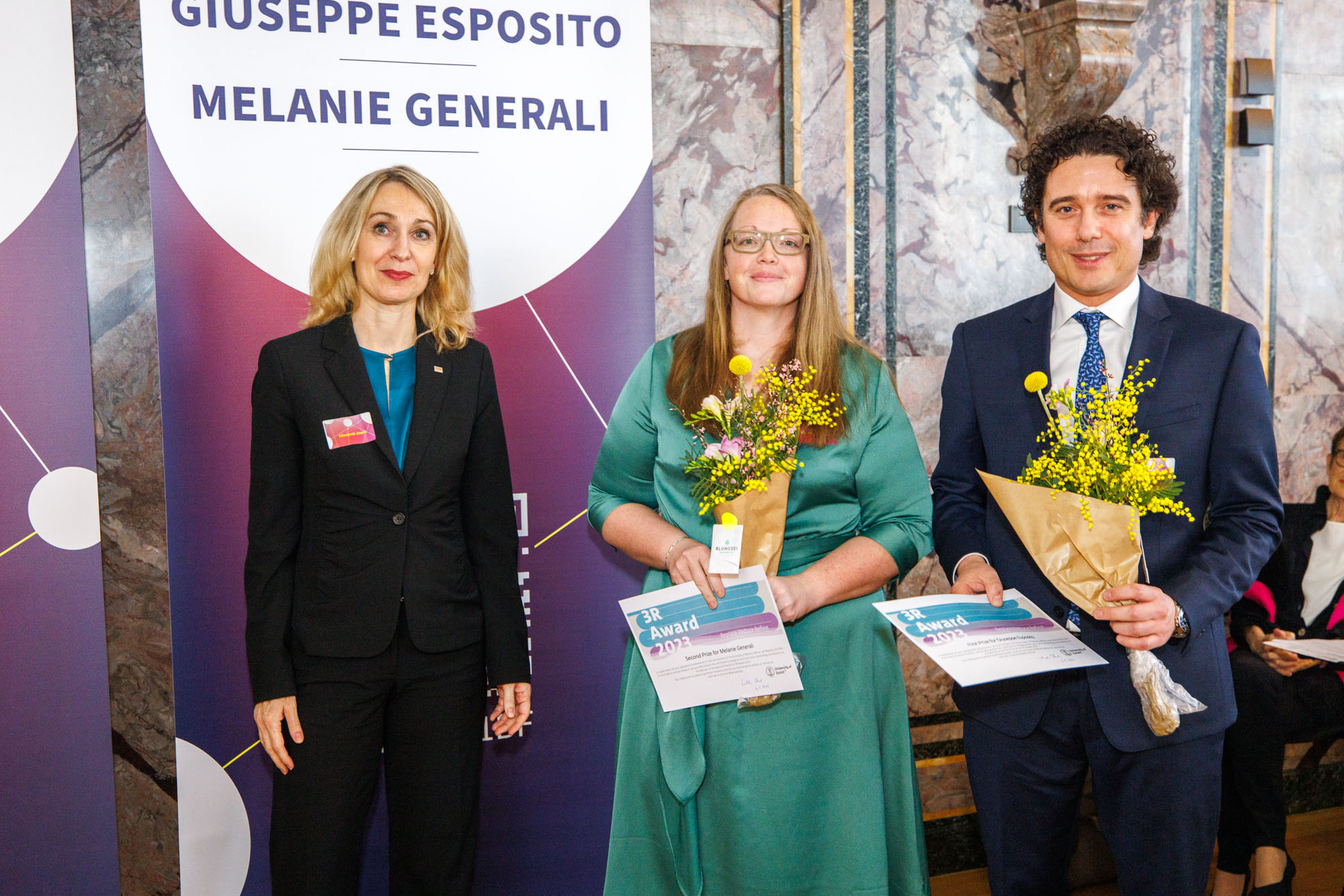UZH 3R Award

The UZH 3R Award is intended to highlight the efforts and successes of UZH staff in the field of 3Rs, both within and outside UZH, and thus promote the 3R principles at UZH.
The award is endowed with 5000 CHF and is presented annually.
The winners 2025 are announced:
Johannes vom Berg & Markus Seeger
Prof. Dr. Markus Seeger and Dr. Johannes vom Berg from the Institute of Medical Microbiology and the Institute of Laboratory Animal Science are awarded for their Flycodes project. This innovative technology enables simultaneous testing of multiple antibodies in a single mouse, drastically reducing the number of animals needed while improving data quality – an innovation in animal-friendly biotherapeutics development. Read the original publication. Read the UZH News article
Fabiola Jörger
Dr Fabiola Jörger from the Section of Anaesthesiology, Department of Clinical Diagnostics and Services at VETSUISSE Faculty is awarded for her tutoring program for training the safe application of anesthesia techniques in dogs and cats. Students received hands-on training at three skills-lab stations with animal simulators and acted as tutors for their peers. This minimized the use of live animals for education while enhancing patient safety and students’ practical skills. Read the UZH News articleSkills-Lab Homepage
Who can be nominated?
- The prize is awarded to a member of the university (individual or team) who makes a significant contribution in the field of the 3Rs.
- Candidates must be employed or enrolled at UZH.
- Candidates can be nominated by any UZH member.
Which contributions will be awarded?
- The contribution may take the form of proposals to modify existing research techniques or innovative approaches that improve ainmal welfare in animal experimentation or reduce or replace the use of animals.
- Published scientific papers or publicly available preprints by UZH researchers as well as education and training projects and initiatives for the implementation of 3R methods by UZH members at UZH can be nominated. The publication, project or initiative should have been published or taken place in the year prior to the year of the award (e.g. for 2026: 01.07.25-31.07.26).
What are the evaluation criteria?
The applications are judged on their 3R relevance (e.g. how many animals can a method save or how much stress on animals is reduced by a method, etc.) and their scope (implementation efforts, establishment, dissemination at the UZH, throughout Switzerland, internationally), scientific projects should also be of good scientific quality (see e.g. also Policy Animal Research).
Which documents have to be submitted?
- Completed application form. (DOCX, 974 KB)
- Copy of the scientific publication or supporting documents describing the project / initiative (images, videos, entries on the website or similar).
- Nominations can be submitted in English or German.
- All documents are treated confidentially.
Please, send the application to 3r@research.uzh.ch
Deadline for Award applications 2026: 31st of July 2026, midnight.
Selection committee
The selection committee consists of external experts with expertise in alternative methods, animal research and animal husbandry, biostatistics and/or ethics.
UZH 3R Award 2024 Winning projects

One prize goes to Petra Seebeck and her ZIRP team for their efforts to optimise surgical procedures on rodents in animal experiments. Surgery is an integral part of many experimental studies. Good surgical practice is a prerequisite for surgical success and optimal animal welfare, which does not only improve the animal’s postoperative recovery, but also outcome and validity of a study. The team aims therefore to gain insight into the application of good surgical practice during laboratory rodent surgery with the help of systematic reviews and surveys. As a consequence of their insights, dedicated training and guidelines are developed and provided to improve the situation. Also their well-attended course “Good Surgical Practice for Rodent Surgery” is a successful step into this direction, which will be complemented with training videos and posters in the future.
UZH News Article on the project.
In this video Petra Seebeck explains what motivated her to initiate the project.
The second prize is awarded to Benjamin Ineichen and his team. The aim of the STRIDE-Lab is to make the systematic review a standard tool among animal researchers at the UZH (and beyond) by championing evidence synthesis of animal research and by providing a supporting environment to make the process of systematic review more efficient for animal researchers. The ongoing endeavour has resulted in a variety of outputs: The CAMARADES Zurich was recently launched providing a supportive framework for animal researchers at the UZH to conduct systematic reviews. Tools to automate the systematic review have been developed and are already openly available to animal researchers, e.g., for automated data extraction from animal studies. A pilot data warehouse presenting bench-to-bedside translational success rates of animal research in specific fields was established. Additionally the team hosted the first CAMARADES summer school on animal systematic review in August 2023.
UZH News Article on the project.
In this video Benjamin Ineichen explains his research.
Picture: Seraina Boner
UZH 3R Award 2023 Winning projects

Giuseppe Esposito: Replacing animals in microsurgical education and training
By using human placentas, Giuseppe Esposito was able to eliminate the use of experimental rats in his microsurgical courses. Due to their numerous vessels of various sizes, conditions during surgery can be well simulated with this initial model and surgeons can be successfully trained. Here Giuseppe Esposito explains how he achieved full replacement in his courses: video.
Melanie Generali: iPSC Core Facility (iPSCore)
Induced pluripotent stem cells, or iPSCs, can in some cases replace laboratory animals in biomedical research. Melanie Generali has founded the iPSC Core Facility (iPSCore) at the Institute of Regenerative Medicine (IREM) of the University of Zurich, which is a unique research facility in Switzerland that supports researchers in producing and working with iPSCs. Learn more about Melanie Generali`s work in this video.
Questions or feedback to Paulin Jirkof, paulin.jirkof@uzh.ch

